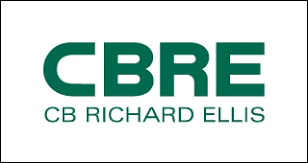This panel joined Securities Docket’s Bruce Carton to look back at the most important and interesting developments in 2008, and offer their predictions for 2009.
Kevin started off noting that the number of securities class action lawsuits in 2008 is a 33% increase over last year and the highest since 2004. He sees the increase as a result of the credit crisis, starting with the sub-prime loan programs and them spreading.
Kevin predicted that 2009 will see even more securities class action lawsuits.
Tom focused on SEC enforcement actions. He started with the Siemens FCPA case. He then mentioned the Faro Technologies case involving payments in China (Admin File No. 3-13059, June 5, 2008). Last he mentioned the UnitedHealth Group option back-dating case. Of course the big case is the Madoff scandal.
Tom expects to see a big re-shaping of the SEC and its enforcement division.
Francine looked at auditor litigation. Either the public accountants fell down while acting as the watchdogs against fraud on the public or that it is that they were also duped by management. The Big 4 has escaped sub-prime exposure so far but will likely get hit in Madoff. She sees BDO Seidman as having significant exposure from the Banco Espiritu Santo judgment. All of the Big 4 are subject to wage/overtime suits. Deloitte has sued their former vice chairman for insider trading.
Francine predicts that a Big 4 firm will take a significant hit for failing to make a “going concern” opinion prior to a big failure.
Walter sees the federal government’s bailout amplifying the effect of the financial markets meltdown. This was not just a Wall Street problem; it is now a taxpayer problem. Walter also expects to see more criminal prosecutions against individuals. He points out that the cutting edge risk methods blew up. CDSs and CDOs caused explosive damage. Also low-tech methods failed. The personal relationships of Madoff still failed investors. peopel are looking for lessons as to whether more regulations would have prevented the financial meltdown.
Walter predicts another AAA rated firm will have its executives indicted or be revealed as insolvent.
Bruce sees the Madoff case as the biggest development in 2008. He also sees the SEC getting worked over by Congress. The SEC admitted that they ignored credible evidence about Madoff.
Bruce predicts 90% of big law firms will begin to use Twitter for public relations.
A public vote found that Tom’s prediction was most likely to happen (41%) with Kevin following close behind (40%).
